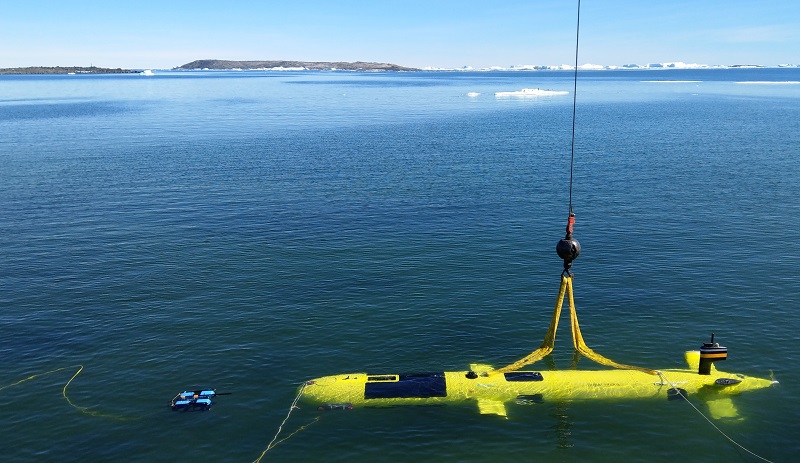Maritime Engineering
Take on ground-breaking industry projects with postgraduate studies in Maritime Engineering.
If you're a professional engineer with a 4-year bachelor’s degree in any engineering discipline, this program will change the course of your career.
You'll study a wide range of subjects relevant to the development and procurement of maritime engineering systems. Each of these programs are aimed at engineering professionals already in the workforce, but with limited exposure to the maritime engineering sector.
Our specialist coursework is designed by experienced maritime engineers and researchers. Delivered through interactive online study resources, these courses provides a flexible learning mode for students who wish to continue working while studying.
Course Options
Master of Maritime Engineering (Professional)
Minimum 2 years, maximum 5 years
Launceston, Online CRICOS 107643J
View course details Master of Maritime Engineering (Professional)
Master of Maritime Engineering (Advanced)
Minimum 1.5 years
Launceston, Online CRICOS 107646F
View course details Master of Maritime Engineering (Advanced)
Graduate Diploma of Maritime Engineering
Minimum 1 year, maximum 3 years
Launceston, Online CRICOS 107650K
View course details Graduate Diploma of Maritime Engineering
Graduate Certificate in Maritime Engineering
Minimum 0.5 years, maximum 2 years
Launceston, Online CRICOS 107651J
View course details Graduate Certificate in Maritime Engineering
Study at Australia’s national institute for maritime education, training and research, ranked #1 globally in the latest International Association of Maritime Universities (IAMU) benchmarks.^
We are the strategic education partner for Australia’s Naval Shipbuilding plan, and we maintain close links with Australian maritime and shipbuilding industries.
We have the Southern Hemisphere’s most advanced maritime research and learning facilities.
Course breakdown
1
Graduate Certificate and Graduate Diploma in Maritime Engineering
Advance your engineering career with the technical skills to work in maritime sectors. The Graduate Certificate and Graduate Diploma in Maritime Engineering is designed to provide engineering graduates with in-depth exposure to a wide range of subjects relevant to maritime engineering systems.
2
Master of Maritime Engineering (Advanced)
Combining studies in maritime engineering with management, this course will give you the expertise to manage engineering projects in the maritime industry. The course builds on your existing skillsets to improve the design, performance and research of maritime vessels and systems.
Your studies will cover maritime engineering topics including ship design, propulsion systems and associated auxiliary machinery.
3
Master of Maritime Engineering (Professional)
Progress your career into specialist areas of maritime engineering including naval architecture, fluid mechanics and marine and offshore systems.
Your studies will combine learning that is specific to the design and construct of maritime vessels and systems with advanced studies in management, project planning and research. You will graduate with an understanding of complex marine systems and the ability to lead engineering projects in the maritime industry.
Career outcomes

Sammar Abbas
Master of Maritime Engineering (Technology Management) Alumnus
“I proudly work for ASC as Life Cycle Engineer. ASC is Australia’s established sovereign naval shipbuilding and submarine platform company and an integral part of Australia’s sovereign naval industrial capability. AMC’s Online learning mode of study provided me every opportunity to grasp the knowledge and complete my degree at my own pace whilst managing work and family in parallel”.
The Australian Maritime College is the most experienced maritime institute in Australia. Your learning will be informed by research that is shaping the future of the Maritime industry.
More than 15,000 jobs are expected to be created in Australia as part of the continuous Naval Shipbuilding Program. Australian Maritime College graduates secure employment in advanced technical and management roles in maritime engineering. All programs lead to greater employment and higher degree study opportunities through industry-relevant research projects.
Career opportunities
Careers relating to Marine Engineering are growing across many industries. Here are some of the top careers projected to grow in the next five years*.
*National Skills Commission five year projections from November 2021 to November 2026
Civil Engineering Professionals
Predicted job growth to 2026*
Industrial, Mechanical and Production Engineers
Predicted job growth to 2026*
Mechanical Engineering Draftspersons
Predicted job growth to 2026*
Study Experiences

Blue Cooperative Research Centre
The Blue Economy CRC brings together expertise in the seafood, marine renewable energy and offshore marine engineering sectors to deliver innovative solutions that will transform the way we use our oceans. This initiative supports a research community of 50 PhD students and 50 postdoctoral research fellows, including from AMC, with partner organisations nationally and internationally.
Entry information
Entry requirements
Entry requirements vary across courses. You'll find the requirements on our individual course pages. These can be accessed from Course Options, which is located at the top of this page.
We encourage you to apply for the courses you most want to study. If you're not eligible to enter your chosen course right now, our admissions team will work with you to find the best pathway option.
Credit for prior learning
The University of Tasmania aims to provide you with credit for approved prior study or equivalent professional experience which exceeds standard entrance requirements for courses. For more information please visit Recognition of Prior Learning.
English language requirements
For those applicants who are nationals of and currently residing in a country where English is not the official language, evidence of an IELTS or TOEFL test must be provided. For more information, please visit International Future Students.